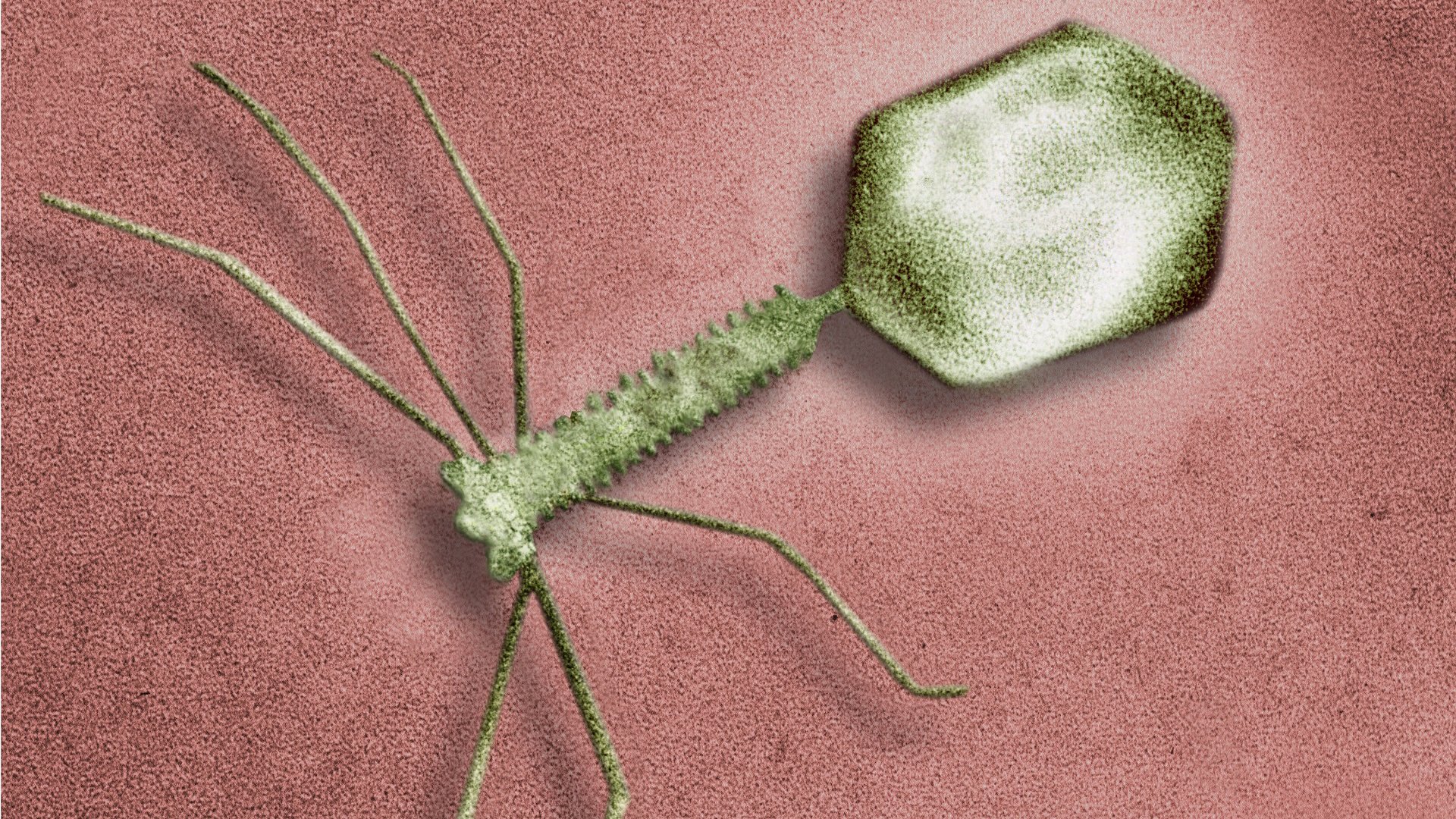We can find them everywhere, even in our own intestines: bacteriophages. These viruses infest bacteria and eliminate harmful ones in the process. This ability makes it possible to use them as an alternative to antibiotics.
We can find them everywhere, even in our own intestines: bacteriophages. These viruses infest bacteria and eliminate harmful ones in the process. This ability makes it possible to use them as an alternative to antibiotics.
Hostage
Bacteriophages, also known as phages, can completely destroy a bacterium. They do so by using their tails to inject their genetic material into the bacterium, which causes the bacterium to manufacture new phages. In essence, the bacterium is being held hostage. Eventually, so many phages are produced that the bacterium explodes. As the phage kills the bacterium thousands of new phages are released that can in turn eliminate other bacteria.
Alternative to antibiotics?
Bacteria have a rapid defence against antibiotics. In a matter of hours, they can adapt to such a degree that the antibiotic can no longer harm them: they have become resistant. Phages operate in a different manner. Each type of phage is species-specific, meaning that it infests one particular species of bacteria. Just as with bacteria, the number of bacteriophage species is extraordinary large. Consequently, bacteria cannot develop resistance to the bacteriophages. When bacteria begin to adapt under pressure from the phages, the phages respond to their adaptation just as quickly in a sort of evolutionary arms race.
Because these viruses are so species-specific, they destroy only the harmful bacteria and allow the useful ones to live. As a result, bacteriophages have no negative effect on the gut microbiota.
Treatment
Despite all their advantages, there is still one drawback to being treated with bacteriophages. Because phages so specifically attack only one species of bacteria, doctors first have to figure out which bacteria is causing the infection. Only then can the appropriate bacteriophage be found. Treatments of this type are already available in Georgia. Currently, however, the use of bacteriophages in the Netherlands is still awaiting research by institutions such as University Medical Center Utrecht and a research group from Delft University of Technology. It will probably take some ten years for bacteriophages to be prescribed as medicine in the Netherlands.

